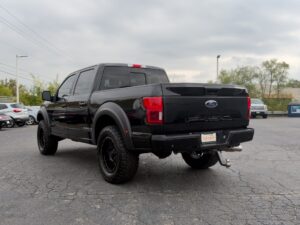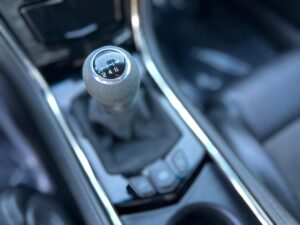How not to buy a used car?
Hold on…hold on…
Buying a used car can be an exciting yet nerve-wracking experience. With so many options available, it’s easy to get caught up in the thrill of finding the perfect vehicle at a great price.
But if you’re not careful, you could end up with a car that’s more trouble than it’s worth.
Dealerships, private sellers, and even online platforms all have their own tactics to maximize their profits—sometimes at the expense of the buyer.
To help you navigate the used and pre-owned car market like a pro, we’re breaking down the most common pitfalls to avoid and sharing insider knowledge that dealerships don’t want you to know.
Follow these tips, and you’ll not only save money but also drive away with confidence in your purchase.
1. How Not to Buy a Used Car: Don’t Skip the Research
One of the biggest mistakes car shoppers make is walking onto a lot without a game plan.
It’s easy to get swayed by a persuasive salesperson, but if you don’t know what you’re looking for—or what a fair price is—you might end up overpaying.
What to Do Instead:
- Research the make and model you’re interested in ahead of time.
- Check vehicle history reports from services like Carfax or AutoCheck.
- Compare prices from multiple dealerships and private sellers.
2. Don’t Assume the Sticker Price is Final
Many dealerships list cars at a higher price than they’re actually willing to sell them for. They count on buyers accepting the sticker price without negotiation, which results in a hefty profit margin for them.
How Not to Buy a Used Car:
- Always negotiate the price, even if it seems fair.
- Use online tools like Kelley Blue Book or Edmunds to determine the car’s true market value.
- Be prepared to walk away if the dealer won’t budge—chances are they’ll call you back with a better offer.
3. Don’t Rely on Verbal Promises
Salespeople might assure you that a car is in “excellent condition” or that “nothing’s wrong with it.” But without written proof, these claims mean nothing.
If something goes wrong after the purchase, it’s your word against theirs.
What to Do Instead:
- Get every promise or agreement in writing.
- Ask for a pre-purchase inspection from a trusted mechanic before committing.
- Verify any warranty claims by reading the fine print.
4. Don’t Forget to Check the Vehicle History Report
A car that looks great on the outside may have a hidden past.
Salvage titles, flood damage, and odometer rollbacks are just a few of the issues that can turn your dream car into a nightmare.
How Not to Buy a Used Car:
- Always request a vehicle history report.
- Look for inconsistencies in mileage records.
- Be wary of deals that seem too good to be true—there’s usually a reason.
5. Don’t Get Pressured into Extras
Dealerships make a significant portion of their profits from add-ons like extended warranties, fabric protection, and rustproofing.
While some of these extras might be useful, they’re often overpriced and unnecessary.
What to Do Instead:
- Ask for a breakdown of all fees before agreeing to anything.
- Research extended warranty options from third-party providers to compare prices.
- Politely decline add-ons that don’t add real value to your purchase.
6. How Not to Buy a Used Car: Don’t Skip the Test Drive
A car can look perfect on paper, but that doesn’t mean it drives well.
Some buyers make the mistake of purchasing a used car without testing it, only to find out later that it has mechanical or comfort issues.
What to Do Instead:
- Always take the car for a test drive on different road conditions (city streets, highways, etc.).
- Pay attention to how the car handles, brakes, and accelerates.
- Listen for any unusual noises and check for warning lights on the dashboard.
7. Don’t Overlook the Fine Print in Financing
If you’re financing your purchase through the dealership, you might end up with a loan that isn’t as favorable as it seems.
Some dealers mark up interest rates or add hidden fees that inflate your total cost.
How Not to Buy a Used Car:
- Get pre-approved for financing from your bank or credit union before visiting the dealership. You can get approved for a car loan with us if you’re interested in a vehicle from our inventory.
- Read every contract carefully before signing.
- Watch out for extended loan terms that lower monthly payments but cost more in the long run.
8. Don’t Trade In Your Car Without Knowing Its Value
Dealerships love it when customers trade in their cars without doing any research.
This allows them to offer a low-ball price while still making a profit when they resell it.
What to Do Instead:
- Research your car’s trade-in value using tools like Kelley Blue Book.
- Get offers from multiple dealerships before making a decision.
- Consider selling your car privately for a higher payout.
9. How Not to Buy a Used Car: Don’t Ignore Red Flags from the Seller
Some sellers—whether dealerships or private parties—will go to great lengths to hide issues with a vehicle.
If a seller seems overly pushy, reluctant to provide paperwork, or unwilling to let you take the car for an inspection, take it as a sign to walk away.
What to Do Instead:
- Trust your instincts—if something feels off, it probably is.
- Ask for all necessary documents, including the title, maintenance records, and bill of sale.
- Never rush into a deal just because the seller says “someone else is interested.”
10. Don’t Forget to Check the Total Cost of Ownership
A car’s sticker price is only part of the equation.
Maintenance costs, insurance rates, fuel efficiency, and depreciation all play a role in how much you’ll actually spend over time.
What to Do Instead:
- Research maintenance costs for the specific make and model.
- Get an insurance quote before buying to avoid surprises.
- Factor in fuel costs, registration fees, and expected depreciation.
How Not to Buy a Used Car? Know Your Trade-In Value First!
If you’re serious about buying a used car but want to avoid common mistakes, taking the time to prepare is key.
At Premiere Motorsports, we believe in helping our customers make informed decisions—without the pressure tactics.
Before you start shopping, why not see what your current car is worth? Use our What’s My Car Worth? tool to get an estimate of your trade-in value and start your car-buying journey with confidence.
Avoid the traps, make smart choices, and drive home in a car that truly fits your needs and budget! You got this!




